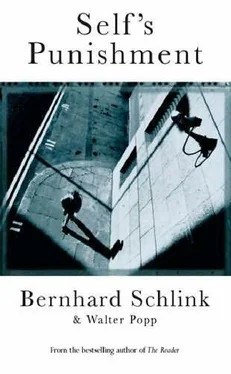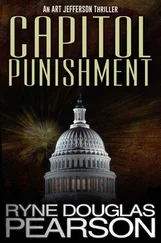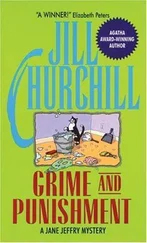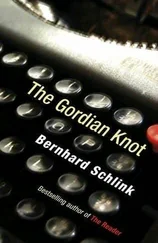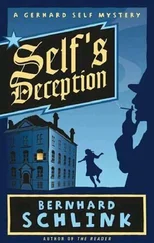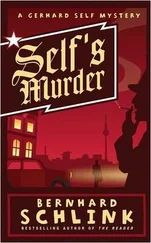Thomas didn’t get it. ‘Do you mean Herr King in export coordination? But he doesn’t have a birthday suit. And besides-’
‘You still had some trouble with the case, Firner told me.’
‘Yes, things were a bit tough with Mischkey.’
‘Should I have been harsher?’
‘He was rather uncooperative when you left him with us.’
‘After everything I heard from Firner he was given the kid-glove treatment. No talk of police and court and prison – that would only encourage a lack of cooperation.’
‘But Herr Self, we didn’t tell him that. The problem lay elsewhere. He virtually tried to blackmail us. We never found out whether he really had something up his sleeve, but he made some noise.’
‘With the same old stories?’
‘Yes, with the same old stories. Threatening to go to the press, to the competition, to the union, to the plant authorities, to the Federal Antitrust Office. You know, it’s tough to say this, and I’m sorry about Mischkey’s death, but at the same time I’m happy not to be burdened with this problem any more.’
Danckelmann came in without knocking. ‘Ah, Herr Self, you’ve been the topic of conversation today already. Why are you still involved in this Mischkey business? The case is long since closed. Don’t go rattling cages.’
Just as I had been when talking to Thomas, I was on thin ice with Danckelmann. Questions that were too direct could make it crack. But nothing ventured, nothing gained. ‘Did Grimm call you?’
Danckelmann ignored my question. ‘Seriously, Herr Self, keep your nose out of this story. We don’t appreciate it.’
‘For me, cases are only over when I know everything. Did you know, for example, that Mischkey took another stroll around your system?’
Thomas pricked up his ears and looked disconcerted. He was already regretting his offer of a teaching appointment.
Danckelmann controlled himself and his voice was tight. ‘Curious notion you have of a job. It’s over when the client says it’s over. And Herr Mischkey isn’t strolling anywhere any more. So please…’
I’d heard more than I’d dreamed possible and had no interest in a further escalation. Just one more wrong word and Danckelmann would remember my special ID. ‘You’re absolutely right, Herr Danckelmann. On the other hand, you certainly agree that when security is involved, things can’t always be contained within the narrow limits of a job. And don’t worry, being a freelancer, I can’t afford to invest too much without a fee.’
Danckelmann left the room only partially appeased. Thomas was waiting impatiently for me to be gone. But I still had a treat for him. ‘To return to what you were saying, Herr Thomas, I’m happy to accept the teaching appointment. I’ll draw up a curriculum.’
‘Thank you for your interest, Herr Self. We’re around.’
I left security and found myself back in the courtyard with Aristotle, Schwarz, Mendeleyev, and Kekulé. On the north side of the yard a sleepy autumn sun was shining. I sat down on the top step of a small staircase leading to a walled-up door. I had more than enough to think about.
More and more pieces of the jigsaw puzzle were fitting together. Yet they still didn’t add up to a plausible picture. I now understood what Mischkey’s file was: a collection of everything he could muster against the RCW. A wretched collection. He must have been playing high-stakes poker to impress Danckelmann and Thomas as much as he obviously had. But what did he want to achieve or prevent by this? The RCW hadn’t told him to his face that they had no intention of instituting proceedings against him with the police, court, and prison. Why had they wanted to exert pressure? What were their intentions towards Mischkey, and what was he arming himself against with his feeble insinuations and threats?
My thoughts turned to Grimm. He’d come into money, he’d had a strange reaction that morning, and I was fairly certain he had talked to Danckelmann. Was Grimm the RCW’s man in the RCC? Had the RCW initially assigned this role to Mischkey? We won’t go to the police, and you’ll ensure our emissions data are always squeaky clean? Such a man would be valuable indeed. The monitoring system would be rendered obsolete and wouldn’t interfere with production.
But none of this necessarily made the murder of Mischkey plausible. Grimm as the murderer, wanting to do business with the RCW and to have Mischkey out of the way? Or did Mischkey’s material contain some other dynamite that had eluded me thus far, that had provoked the deadly reaction of the RCW? But then Danckelmann and Thomas could scarcely have overlooked such an act, and they wouldn’t have spoken so openly to me about the conflict with Mischkey. And while Grimm might make a better impression than in his safari suit, even with his pencil moustache I couldn’t picture him as a murderer. Was I looking in completely the wrong direction? Fred might have beaten up Mischkey under contract from the RCW, but also from any other employer, and he could have killed him for them. What did I know about all the ways Mischkey could have entangled himself through his confidence tricks? I’d have to talk to Fred again.
I took my leave of Aristotle. The courtyards of the old factory worked their magic again. I walked through the archway into the next courtyard, its walls glowing in the autumnal red of the Virginia creeper. No Richard playing with his ball. I rang the bell of the Schmalzes’ work apartment. The elderly woman, whom I recognized by sight, opened the door. She was dressed in black.
‘Frau Schmalz? Hello, the name is Self.’
‘Hello, Herr Self. You’re joining us for the funeral? The children will be collecting me any minute.’
Half an hour later I found myself in the crematorium of Ludwigshafen Cemetery. The family had included me in the mourning for Schmalz senior as though it were perfectly natural, and I didn’t like to say that I’d stumbled upon the funeral preparations just by chance. Along with Frau Schmalz, the young married Schmalz couple, and their son Richard, I was driven to the cemetery, glad to be wearing my dark-blue raincoat and the muted suit. During the drive I learned that Schmalz senior had died of a heart attack four days ago.
‘He looked so sprightly when I saw him a few weeks ago.’
The widow sobbed. My lisping friend told me about the circumstances that had led to his death. ‘Dad kept on tinkering with old vans and trucks after retiring. He had a part of the old hangar by the Rhine where he could work. Lately he didn’t take care. The cut in his hand didn’t go that deep but according to the doctor he had heavy bleeding in the brain, too. After that Dad felt a tingling in the left part of the body all the time, he felt terribly unwell, and he didn’t want to get out of bed. Then the heart attack.’
The RCW was well represented at the cemetery. Danckelmann gave a speech. ‘His life was the Works’ security and the Works’ security was his life.’ In the course of his speech he read out a personal farewell letter from Korten. The chairman of the RCW chess club, where Schmalz senior had played third board on the second team, asked Caissa’s blessing on the deceased. The RCW orchestra played ‘I Had a Comrade’. Schmalz was so moved, he forgot himself and lisped at me, ‘Dad’s dearest wish.’ Then the flower-wreathed coffin glided into the furnace.
I couldn’t get out of the funeral tea. I did manage, however, to avoid sitting next to Danckelmann or Thomas, although Schmalz junior had intended this seat of honour for me. I sat next to the chairman of the RCW chess club and we chatted to each other about the world championship. Over cognac we started a game in our heads. By the thirty-second move I lost my overview. We came round to the subject of the deceased.
Читать дальше
